Choosing the right forklift is an investment that has long-term effects on efficiency, costs, occupational health and safety, and regulatory compliance. The crucial question often arises: Should it be a diesel forklift or an electric forklift?
Diesel forklifts stand for maximum performance, high lifting capacity, and robust technology – especially in outdoor applications. Electric forklifts, on the other hand, impress with emission-free operation, low noise levels, and significantly lower operating costs indoors.
In this guide you will learn:
- The real advantages and disadvantages of diesel and electric forklifts – beyond marketing claims
- How battery aging, emissions and regulation affect your investment
- Which funding programs, financing models, and technologies are crucial today?
The goal is not a blanket recommendation, but an investment-safe decision that takes into account operating costs, employee health and legal requirements equally.
Health consequences and liability risks – a realistic scenario
A logistics company operated diesel forklifts in enclosed warehouses for years. A long-term employee developed a chronic respiratory illness.
The employers' liability insurance association conducted a workplace analysis and determined that diesel exhaust fumes were a significant risk factor . The result:
- Claim for damages in the six-figure range
- Increased insurance premiums
- Requirements for switching to emission-free industrial trucks
Prevention: Electric forklifts, consistent noise reduction and clean air are not just occupational safety – they measurably reduce liability and insurance costs.
Diesel forklift
Advantages
Diesel forklifts are performance and endurance specialists . They reliably move heavy loads over long distances and are independent of charging infrastructure. They particularly demonstrate their strengths in intensive outdoor applications , on construction sites, or in industrial areas.
Another advantage is the immediate readiness for use : refueling takes only a few minutes, and shift changes cause no downtime.
Disadvantages
In contrast , higher maintenance and operating costs . Oil changes, filters, exhaust aftertreatment (DPF, SCR) and rising fuel prices noticeably increase the TCO.
However, the regulatory framework is crucial: exhaust fumes and noise severely restrict their use indoors. In many companies, diesel forklifts are practically no longer permitted indoors .
Areas of application
Diesel forklifts are ideal for purely outdoor use , heavy loads, uneven floors, and long distances. However, as soon as they are regularly used indoors, the requirements for ventilation, occupational safety, and permits increase significantly.
Electric forklift
Advantages
Electric forklifts operate emission-free , quietly, and with low vibration. This makes them the standard solution for indoor areas , warehouses, logistics centers, and food and pharmaceutical plants.
Fewer moving parts mean lower maintenance costs . Furthermore, energy costs per operating hour are significantly lower than for diesel.
Disadvantages
The key factor is the battery . Operating time, charging times, and battery lifespan significantly determine cost-effectiveness. Without proper charging and operational planning, downtime will occur.
Battery aging & battery technologies (critical decision factor)
Forklift batteries are not consumable parts in the traditional sense, but rather energy carriers with a limited lifespan . In practice, conventional lead-acid batteries achieve approximately 1,200–1,500 charging cycles . This corresponds to about 4–5 years of single-shift operation.
At the end of their service life, they usually only have 70–80% of their original capacity remaining. The forklift often can no longer complete a full shift.
Factors influencing lifespan:
- Deep discharge below 30% (damages the battery)
- Heat stress from fast charging without cooling
- Irregular charging cycles
Lithium-ion batteries, on the other hand, achieve 2,500–4,000 cycles and thus a service life of 8–10 years . They are maintenance-free, charge faster, and are significantly more robust against partial charges.
Alternative: Instead of buying new batteries, regeneration of lead-acid batteries can restore up to 50–80% of their capacity – significantly cheaper than replacement.
Tip: Instead of a new battery, you can also use a used forklift battery .
Lead-acid vs. lithium-ion batteries in direct comparison
The choice of battery technology affects not only the operating time but also the overall cost-effectiveness of the electric forklift. The differences are significant – both technically and financially.
| aspect | lead-acid battery | Lithium-ion battery |
|---|---|---|
| Cycles up to 80% capacity | 1,200–1,500 | 2,500–4,000 |
| Typical lifespan | 4–5 years (single shift operation) | 8–10 years |
| maintenance | Water refilling and maintenance required | Maintenance-free |
| Fast charging capability | Limited (2-3 hours) | Yes, up to 80% in about 30 minutes. |
| Temperature sensitivity | High | Medium |
| Acquisition costs | ≈ €4,000–6,000 | ≈ €10,000–14,000 |
Practical conclusion: For single-shift operations with predictable charging windows, lead-acid batteries can be economical. In multi-shift operations or with high utilization, lithium-ion batteries pay for themselves significantly faster despite higher initial costs.
Emission regulations, noise & regulation
Since the introduction of EU Stage V (2019), diesel and gas forklifts have had to meet strict emissions standards. This technology increases the cost of purchase and maintenance.
With Euro 7 (from 2026), emissions will for the first time also be assessed under real-world driving conditions . This indirectly affects electric vehicles as well (tire abrasion, brake dust).
Particularly critical: The employers' liability insurance associations are issuing clear warnings about diesel soot in indoor spaces . Diesel exhaust is considered carcinogenic . Operators bear a liability risk in this regard.
Noise level:
- Diesel: 85–90 dB
- Electrical: 65–75 dB
- Limit value in workplaces (DE): 80 dB
A company that purchases diesel today risks not being allowed to use it in its facilities tomorrow.
Funding & Subsidies (crucial for the TCO)
Electric forklifts are heavily subsidized in Germany. Depending on the program, subsidies of 33–60% are possible.
- KfW programs for electric industrial trucks
- State funding (e.g., North Rhine-Westphalia, Bavaria, Baden-Württemberg)
- CO₂-based subsidies (up to €500/t)
Important: The application must be submitted before the purchase . Subsequent funding is not possible.
Funding programs explained in detail (including sample calculation)
Subsidies are not a bonus, but a crucial economic factor . Depending on company size and location, significant portions of the investment can be offset.
- KfW program 291/292: Subsidies for electric industrial trucks, depending on company size
- BAFA energy efficiency funding: Up to 33% subsidy for small and medium-sized enterprises
- State funding: North Rhine-Westphalia, Bavaria and Baden-Württemberg offer additional programs (5–10%)
Important: The funding application must be submitted before the contract is signed . Applications submitted after the contract has been signed will be rejected.
Example calculation:
- Investment: €100,000 (electric forklift fleet)
- KfW grant (33%): -€33,000
- BAFA funding: -€10,000
- State funding (e.g., North Rhine-Westphalia): -€5,000
Effective investment costs: €52,000 instead of €100,000 → 48% cost reduction even before the first use.
KfW funding: How it works in practice
- Obtain a cost estimate(s) from the supplier
- Submit your KfW application online (processing time approx. 4–6 weeks)
- Await grant notification
- Only then should you sign the purchase contract.
- After delivery: Submit proof of use
Typical mistake: Ordering before approval → funding is completely forfeited.
Battery-as-a-Service (BaaS)
With the Battery as a Service (BaaS) model, the battery is rented instead of purchased . Monthly costs are usually between €100 and €200 .
Advantages:
- No battery investment risk
- Maintenance & replacement included
- Predictable costs
Particularly attractive for multi-shift operations.
Fast charging & battery pooling
Modern lithium systems enable fast charging up to 80% in 30 minutes . This reduces the need for replacement batteries by up to 40% .
Important: Never operate the battery below 30% SOC and pay attention to thermal management.
Health & Insurance
Chronic noise pollution and diesel exhaust fumes have been proven to increase the risk of respiratory and cardiovascular diseases.
Insurers and employers' liability insurance associations are increasingly demanding low-emission fleets. In the event of illnesses , liability and recourse claims are a real possibility.
Rules of thumb for initial TCO calculation
Result: For indoor use, electric is usually 30–45% cheaper in the long run. Diesel is only worthwhile if used predominantly outdoors.
The alternative: LPG forklifts
LPG forklifts bridge the gap between diesel and electric. They are lower in emissions than diesel, more versatile, but also increasingly restricted by regulations.
Practical scenario: Warehouse operation with 20 forklifts
A medium-sized warehouse operates on a two-shift system and requires 20 forklifts for goods receipt, order picking and shipping.
Option 1: Diesel fleet
- Acquisition: 20 × €45,000 = €900,000
- Annual operating costs: approx. €200,000 (diesel, maintenance, wear and tear)
- 5-year TCO: €900,000 + €1,000,000 = €1,900,000
- Risk: Restriction of hall operations due to emission regulations
Option 2: Electric fleet with subsidies
- Acquisition: 20 × €50,000 = €1,000,000
- Funding (40%): -€400,000
- Effective investment: €600,000
- Annual operating costs: approx. €80,000
- 5-year TCO: €600,000 + €400,000 = €1,000,000
Result: Savings of around €900,000 over five years – plus regulatory and health safety.
Conclusion
Electric forklifts are the most economical, safest choice in terms of health and regulations for indoor use . Diesel forklifts remain a sensible option for heavy-duty outdoor applications.
If you're unsure, we're happy to advise you. At BIBERGER, you can rent and test both electric and internal combustion engine forklifts .
We will also explain other topics such as load diagrams or soil conditions in a practical way.


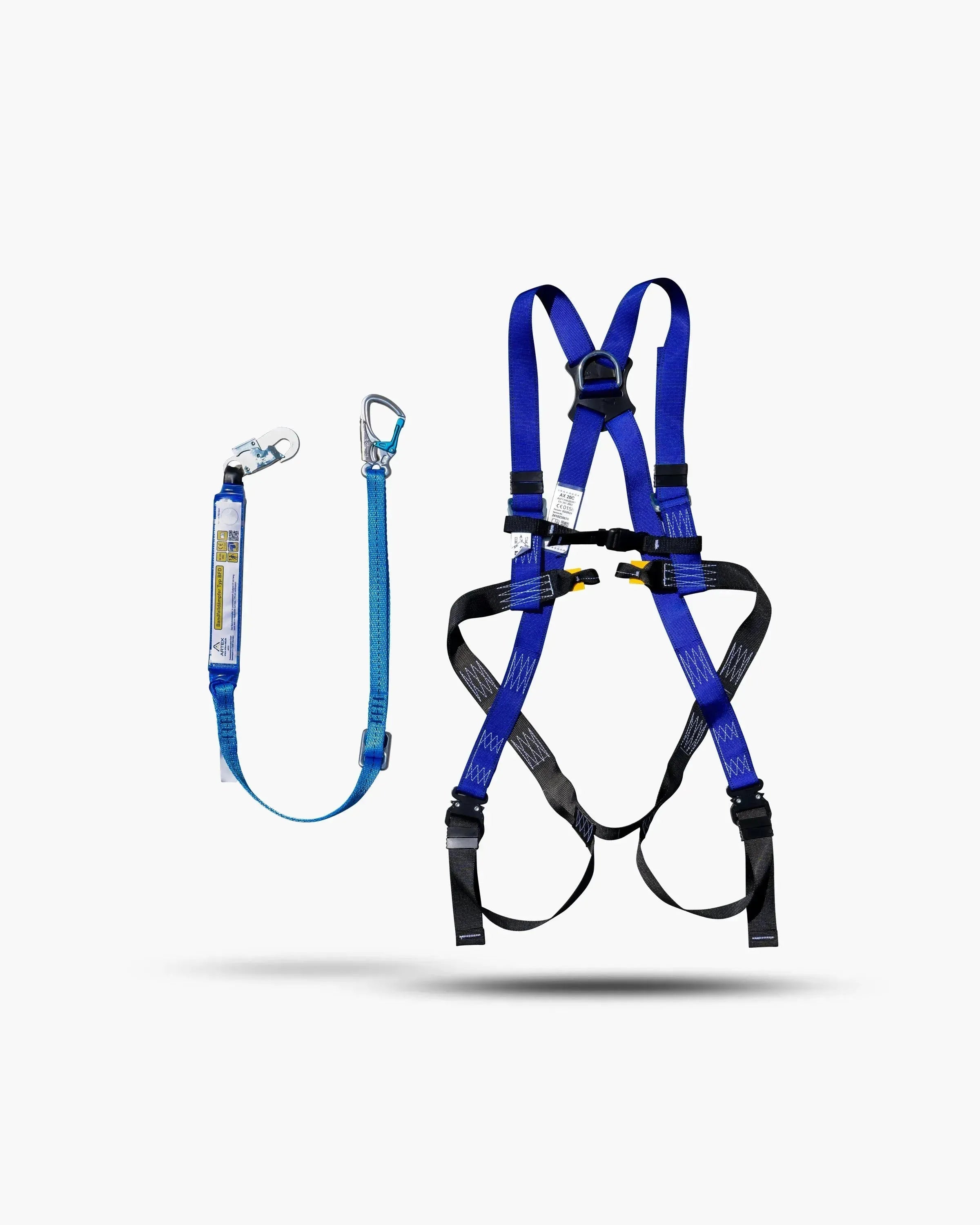




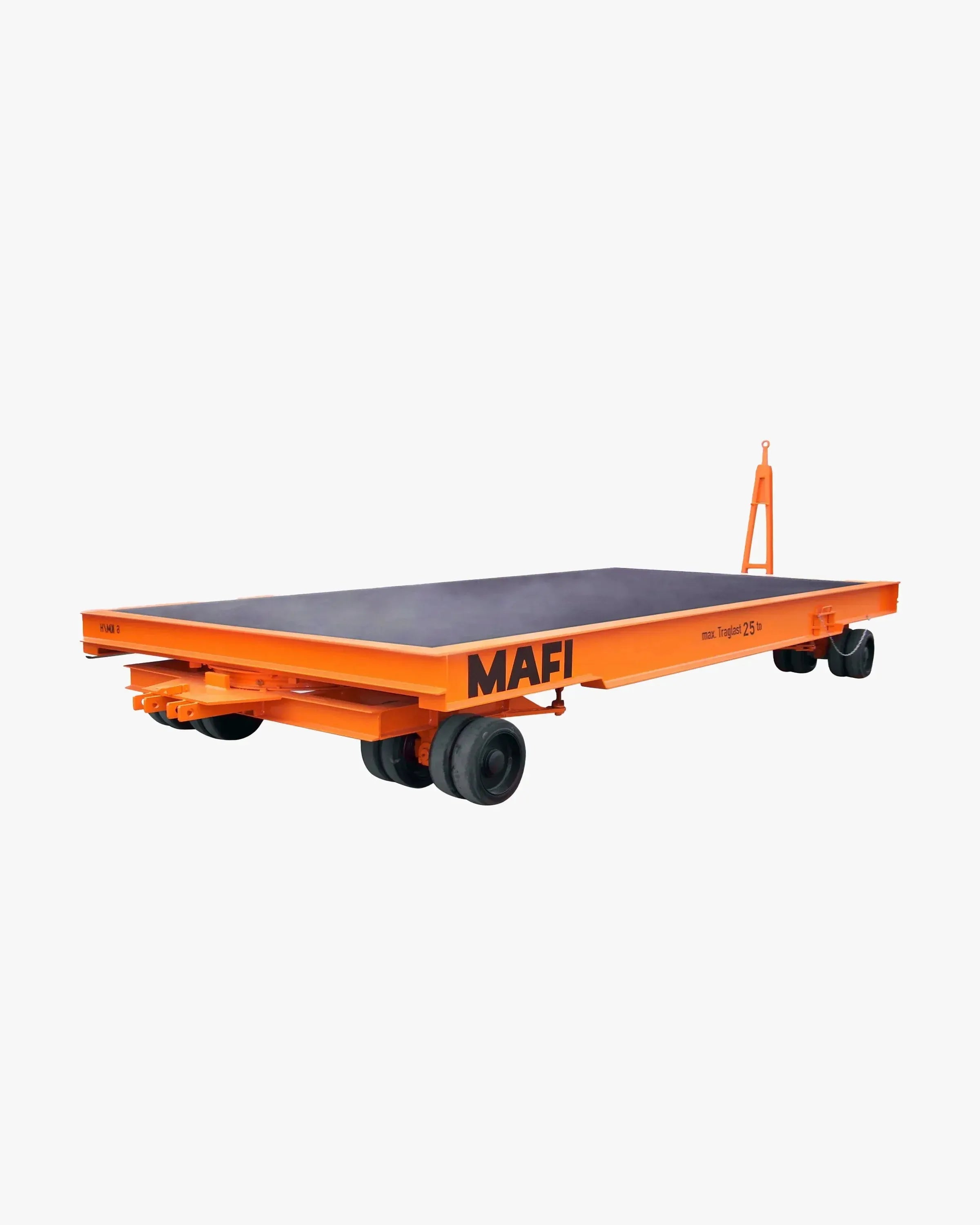
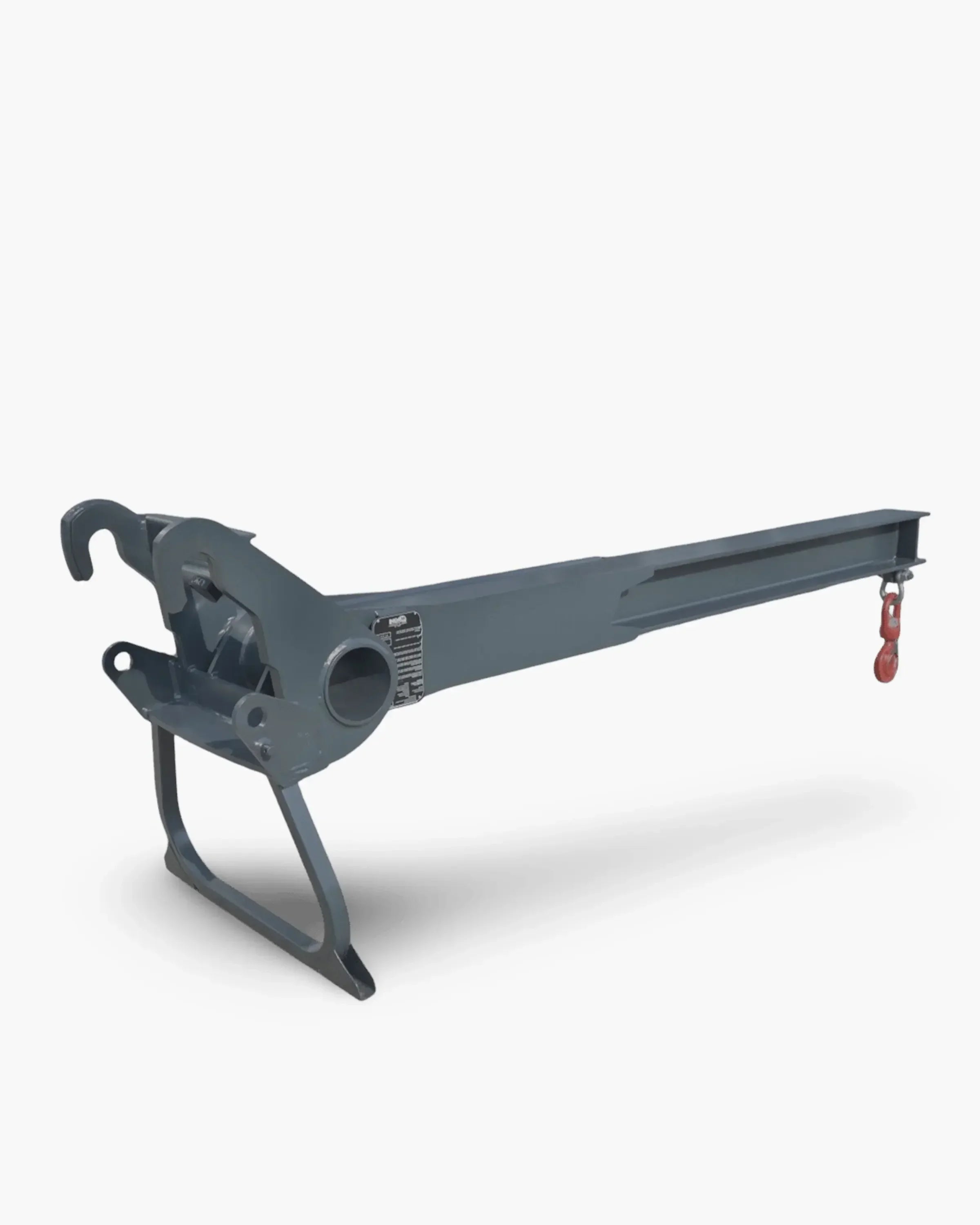
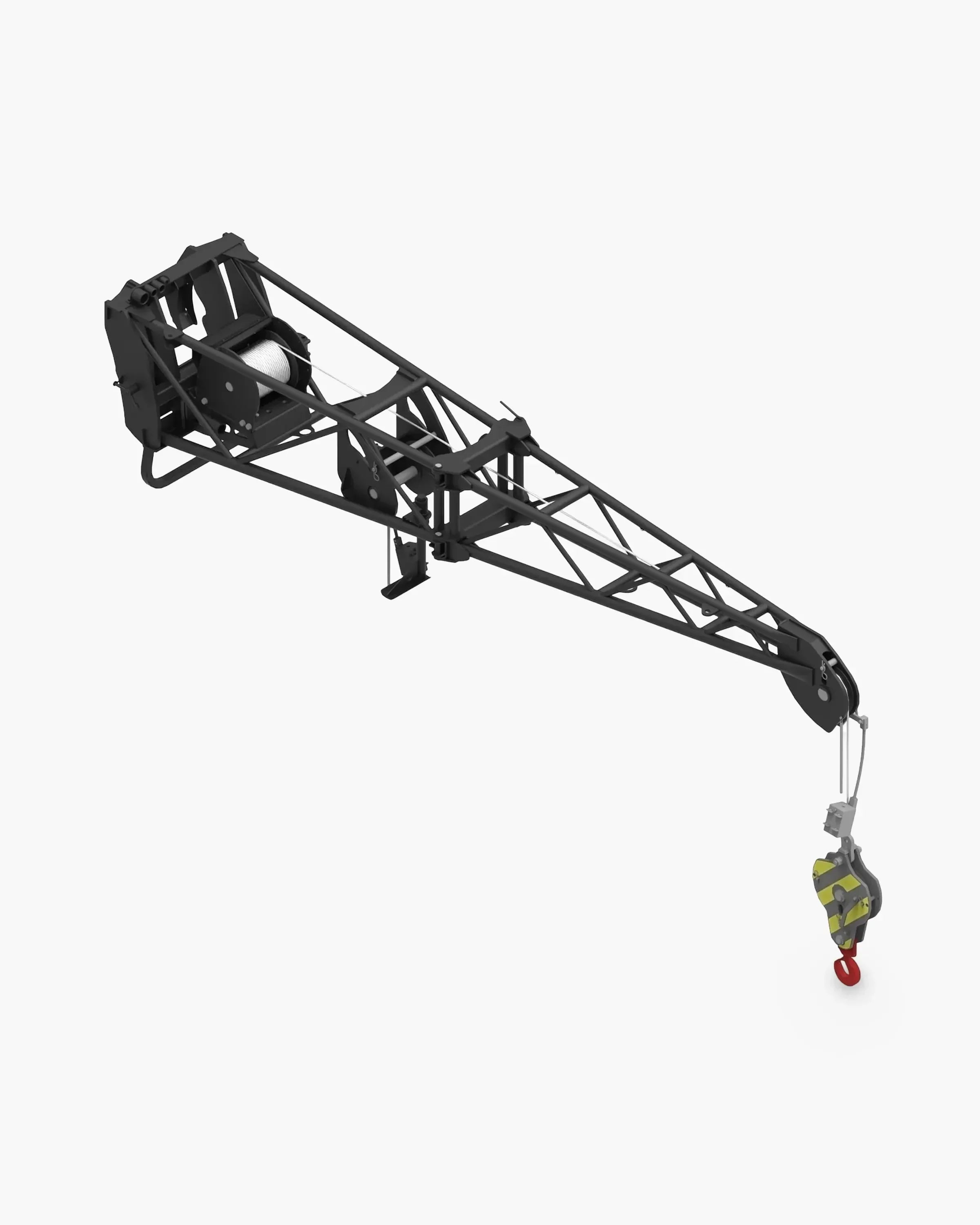
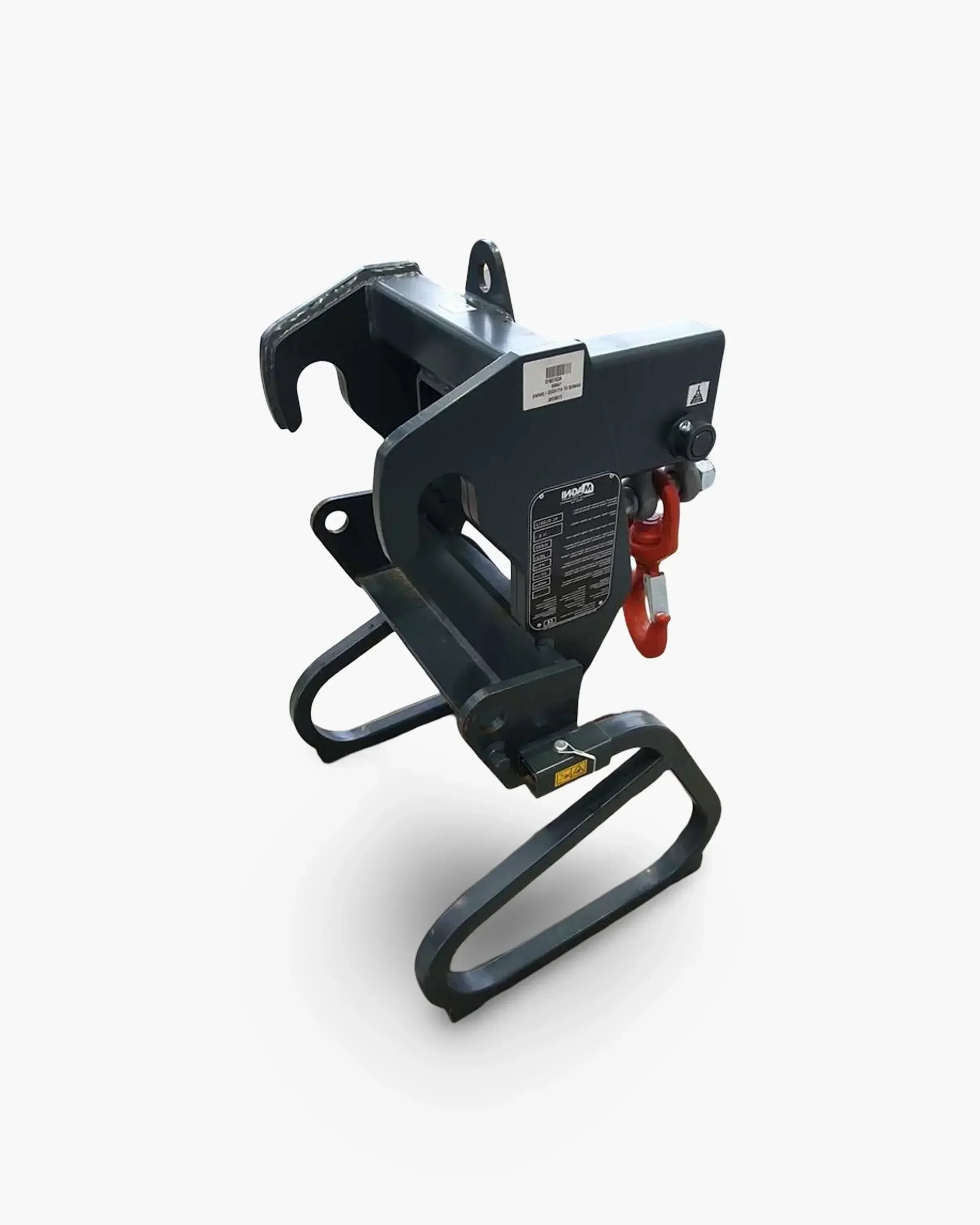

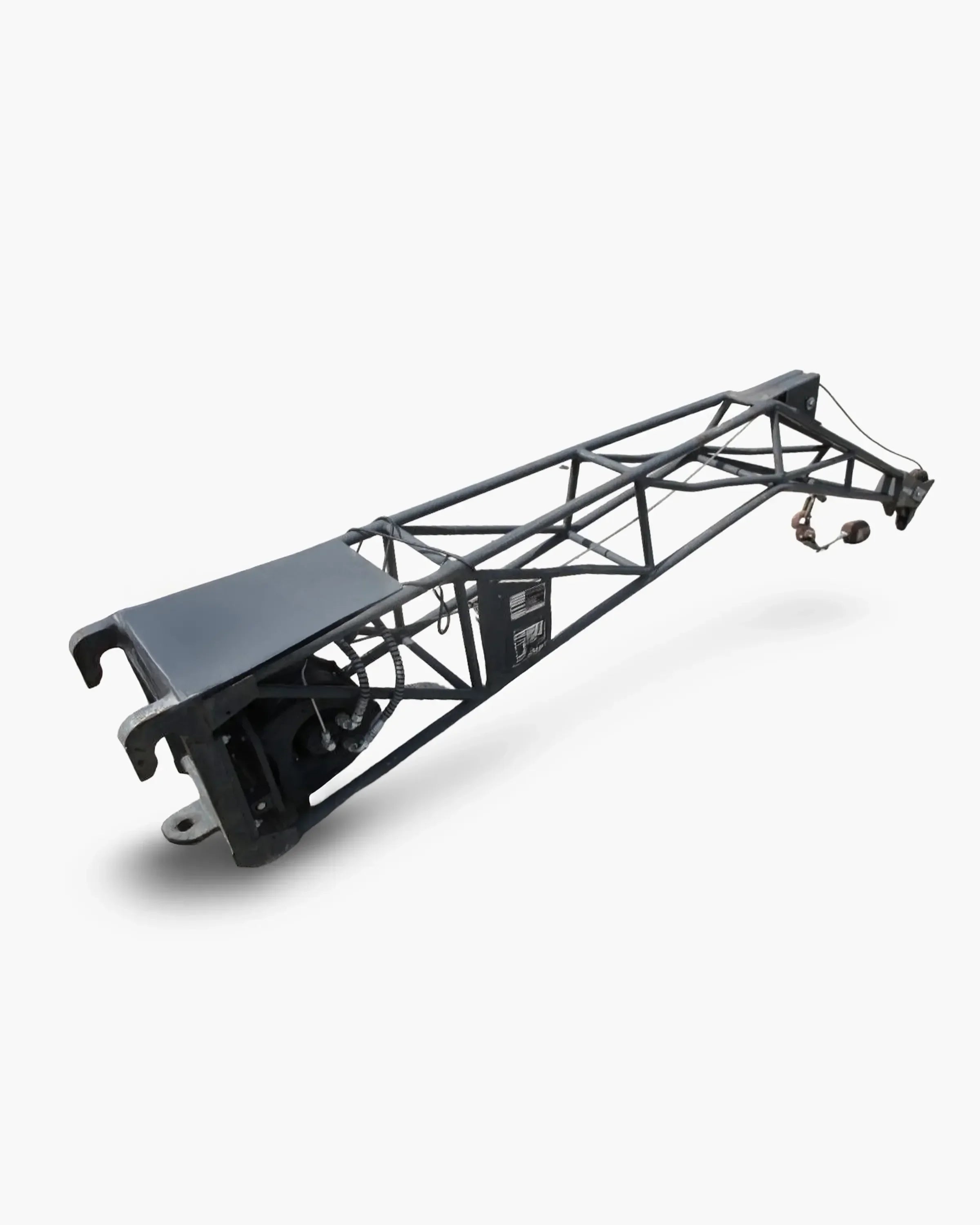
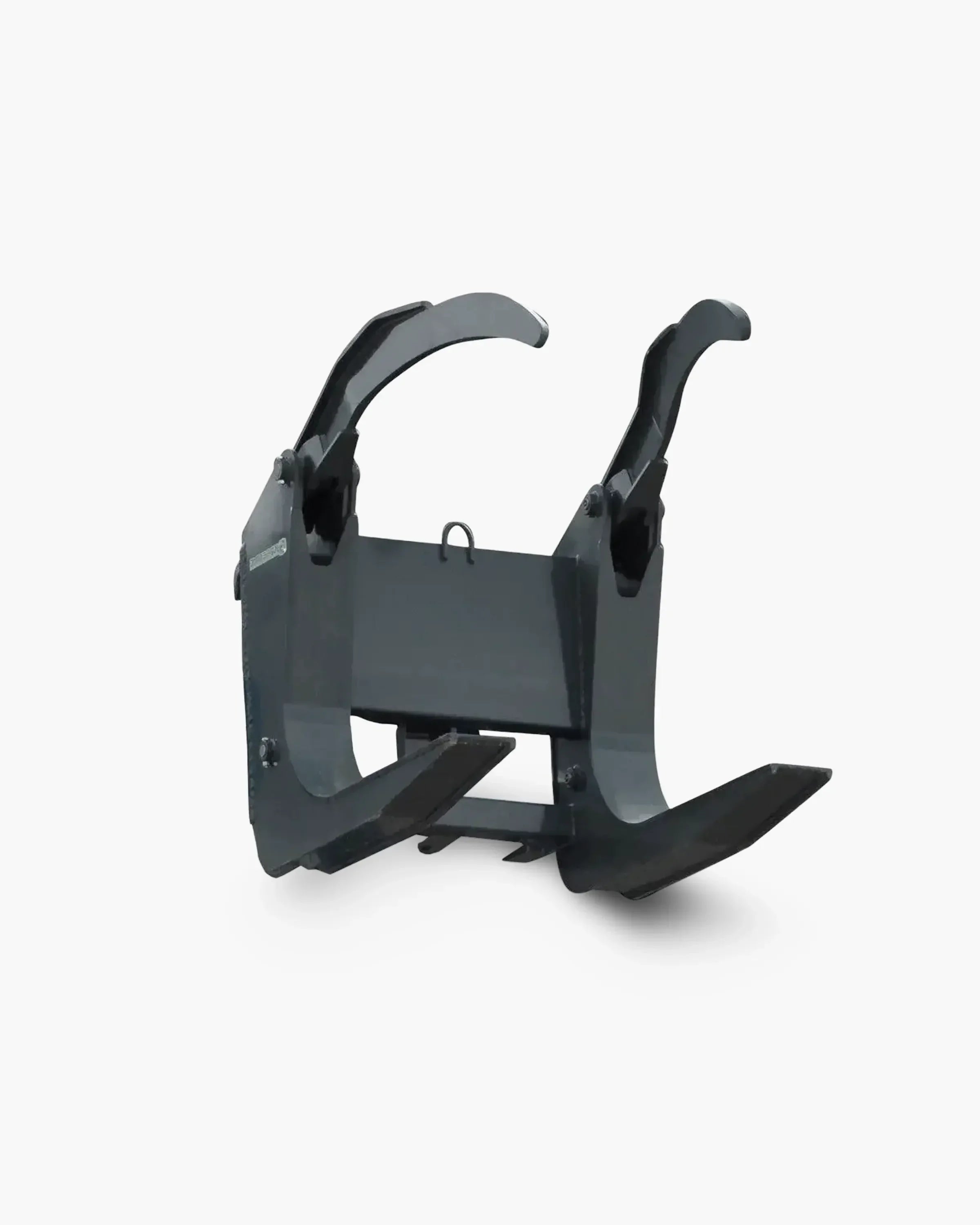
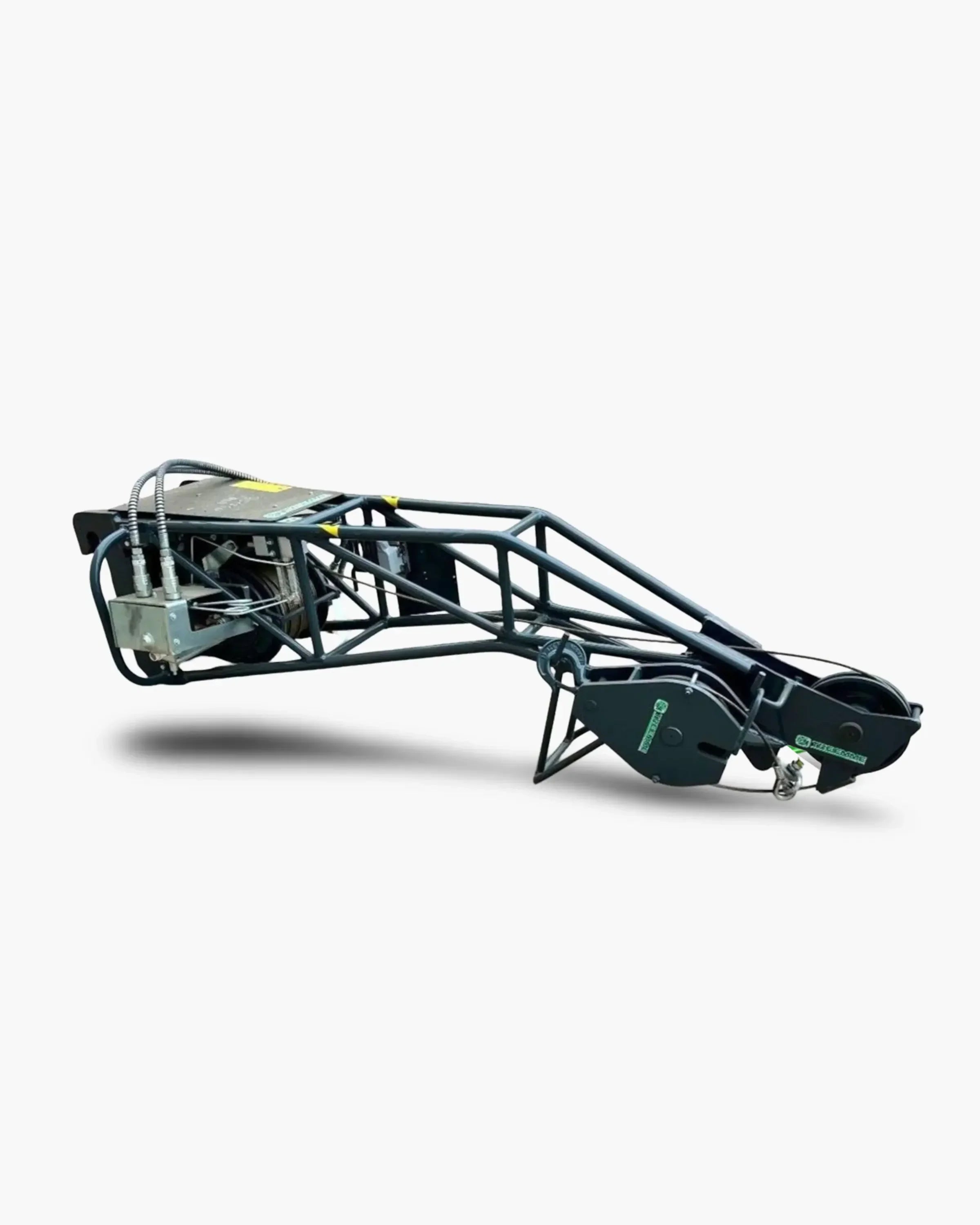

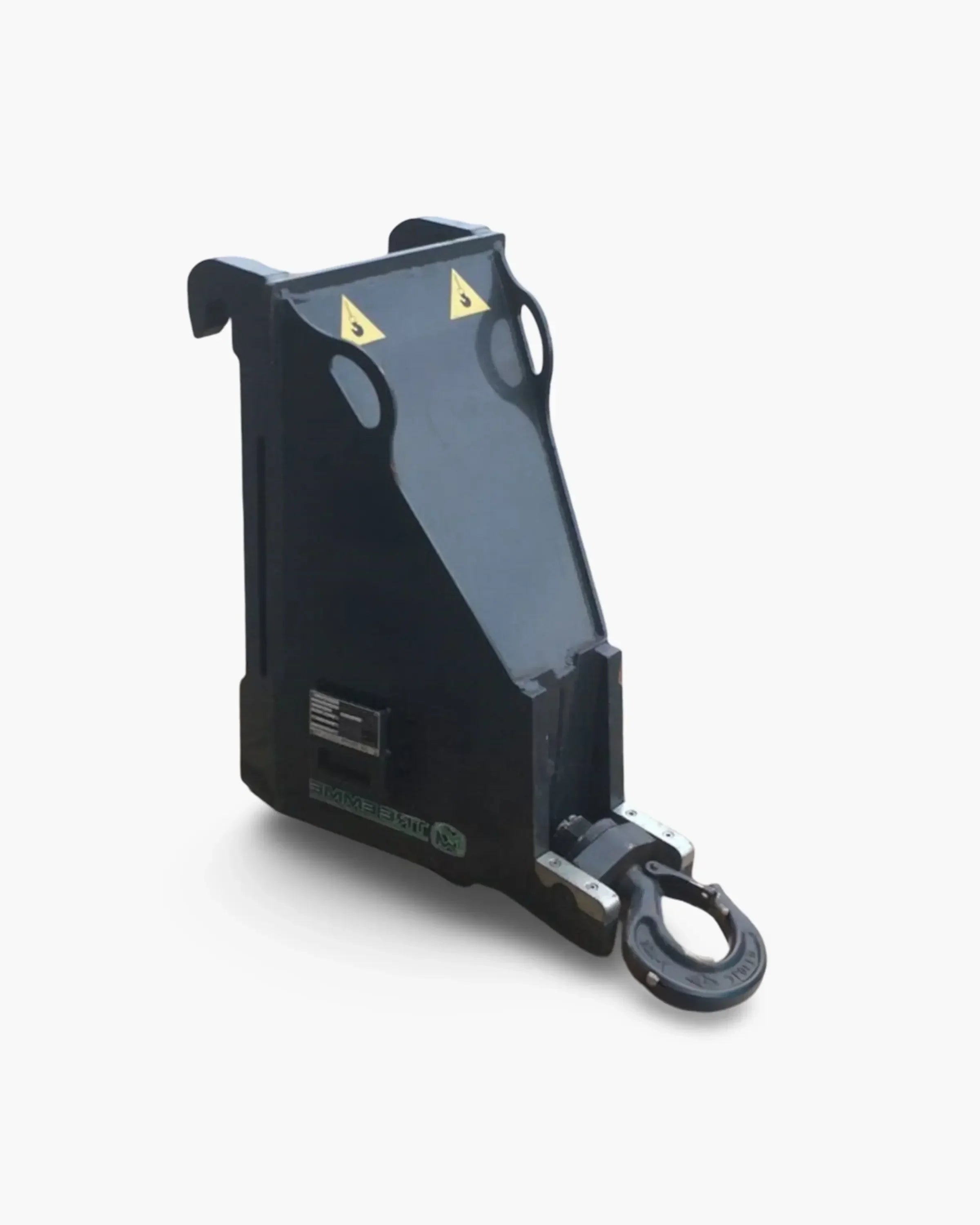
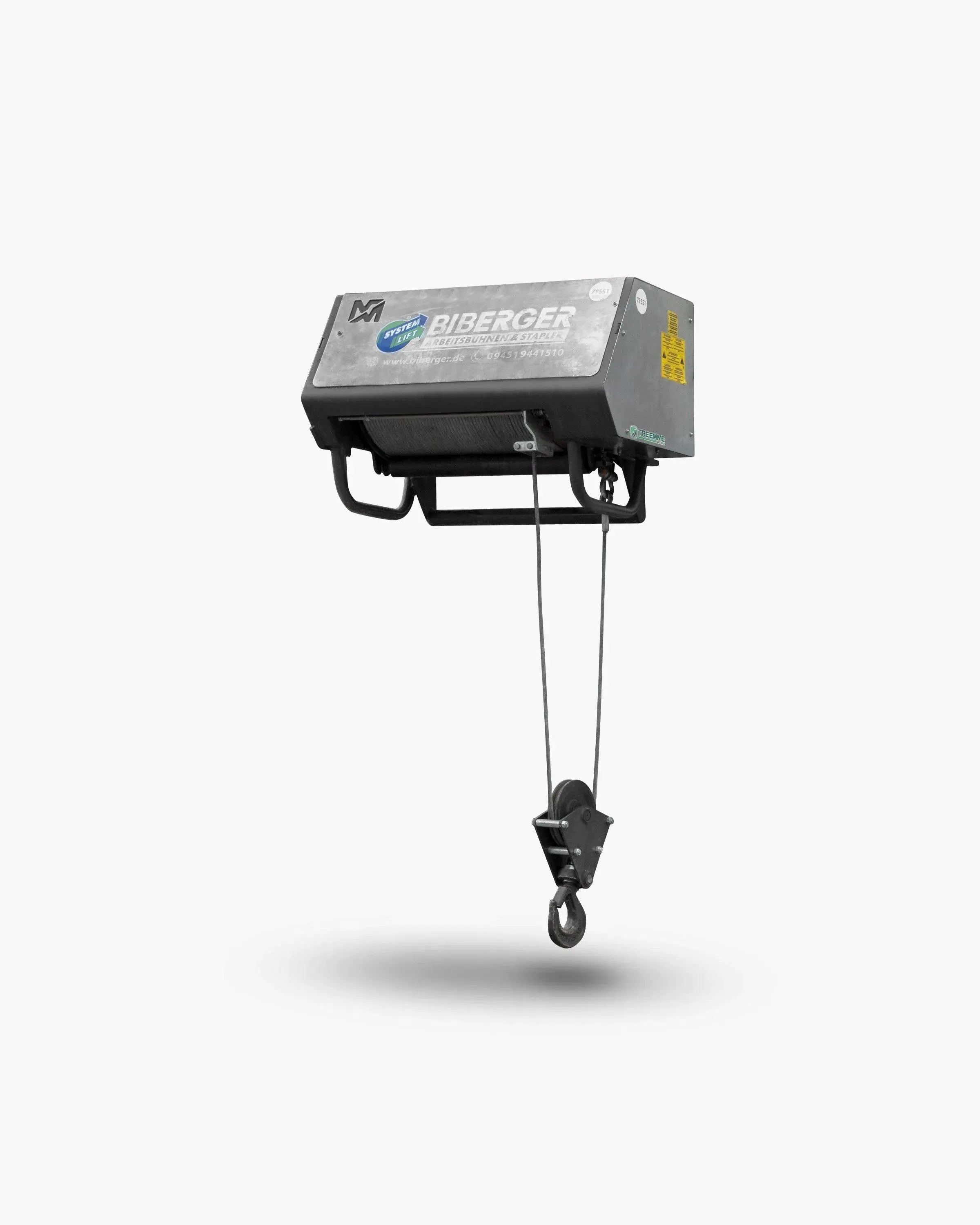
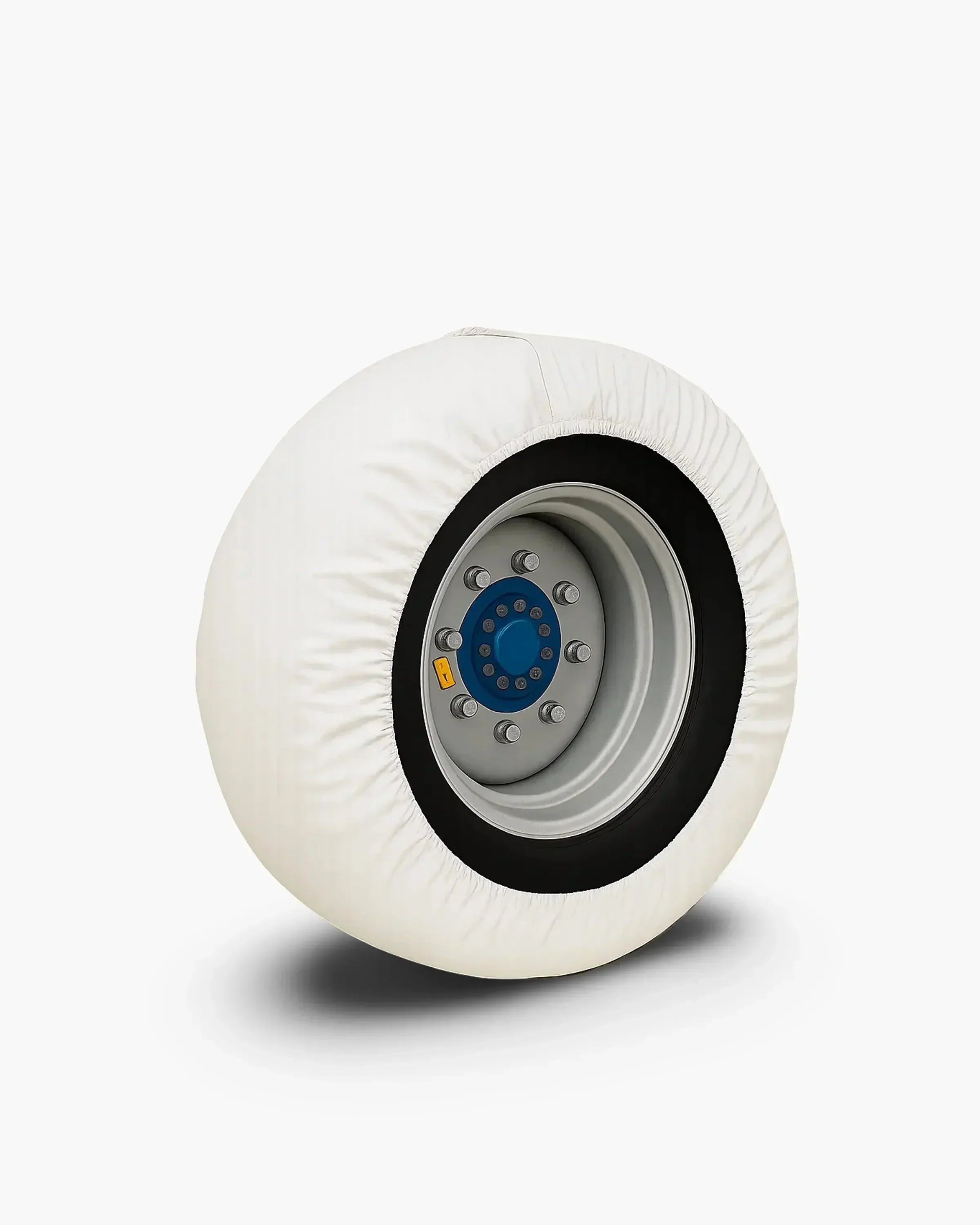


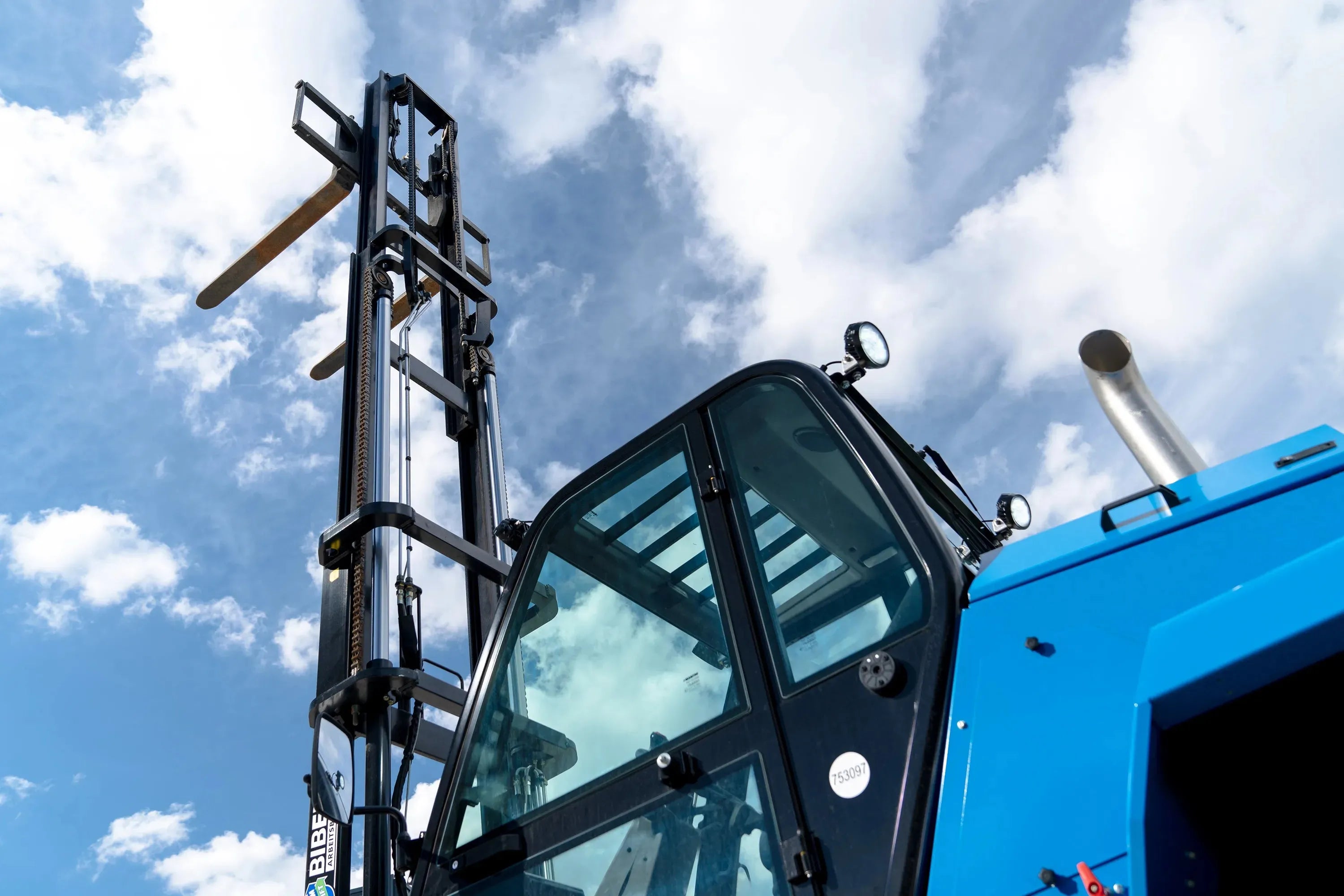

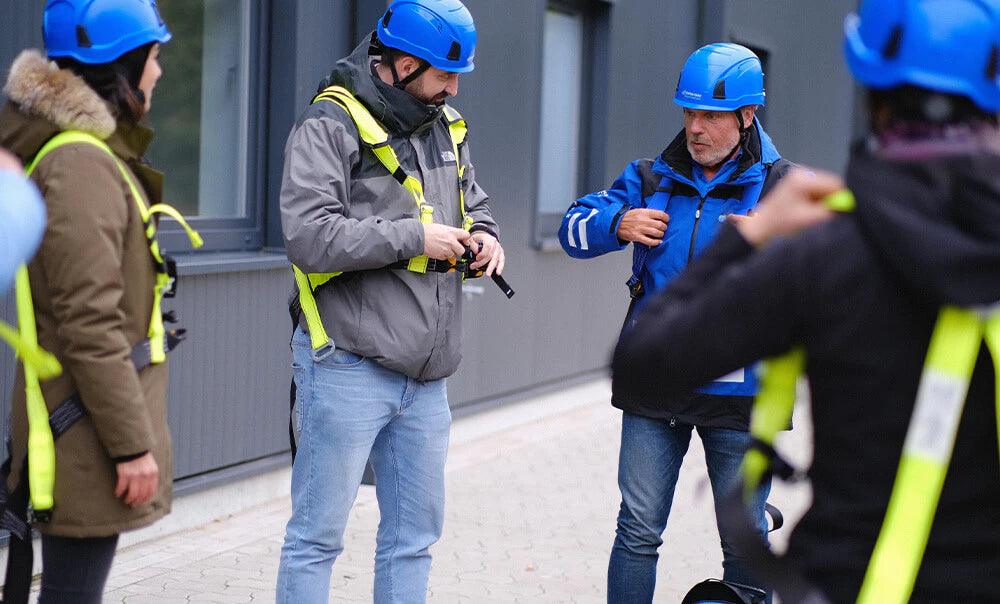

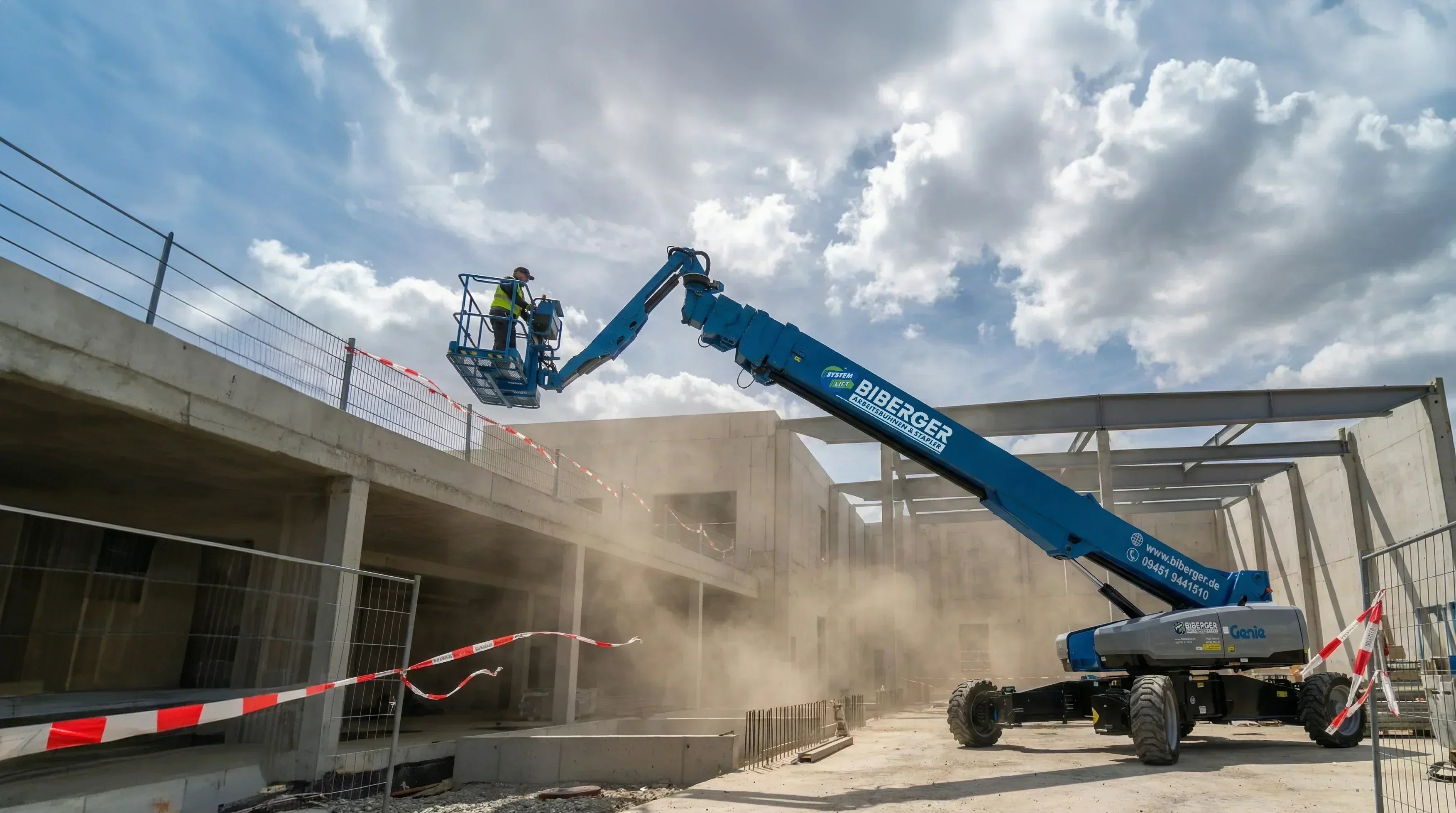

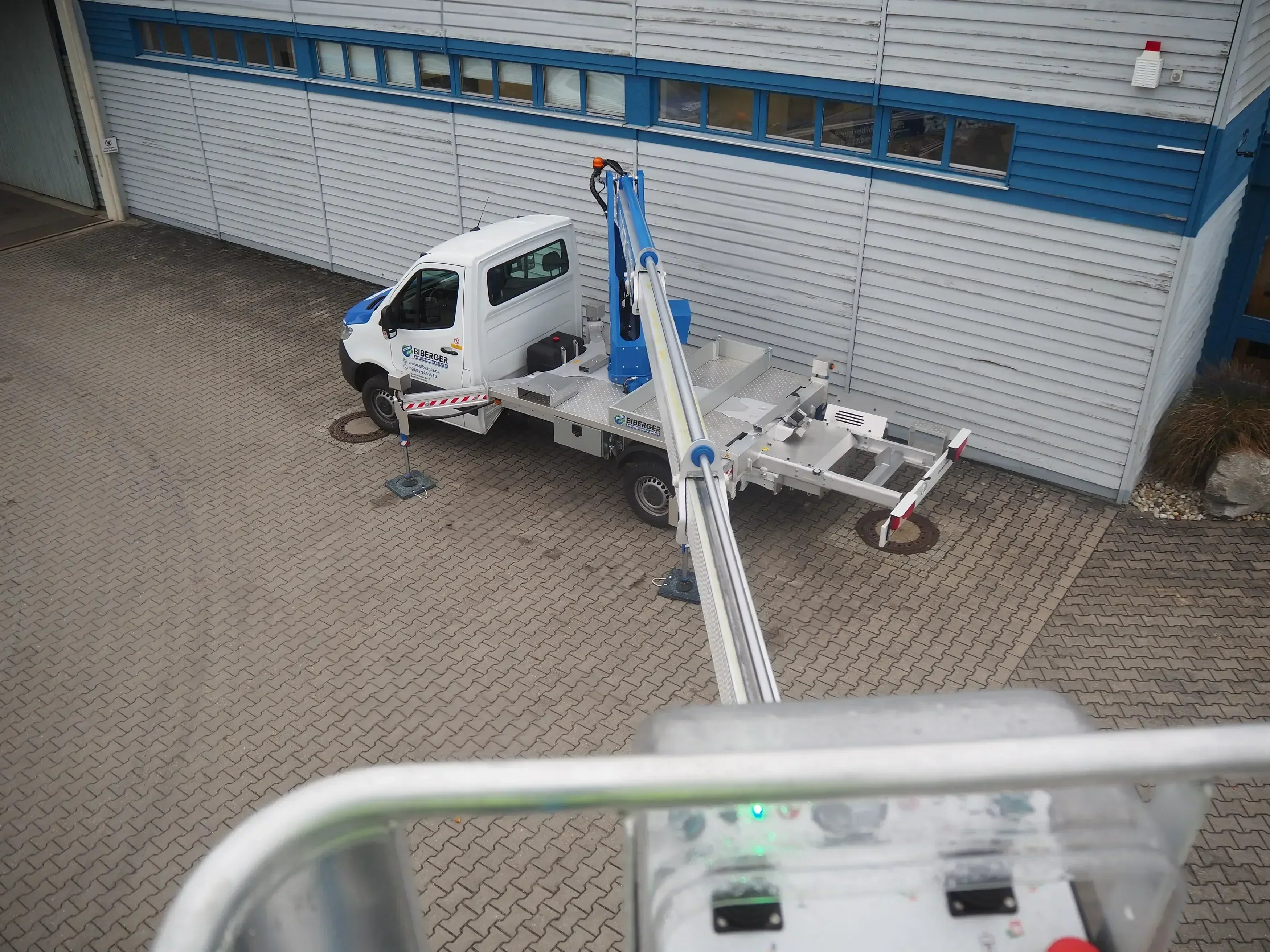
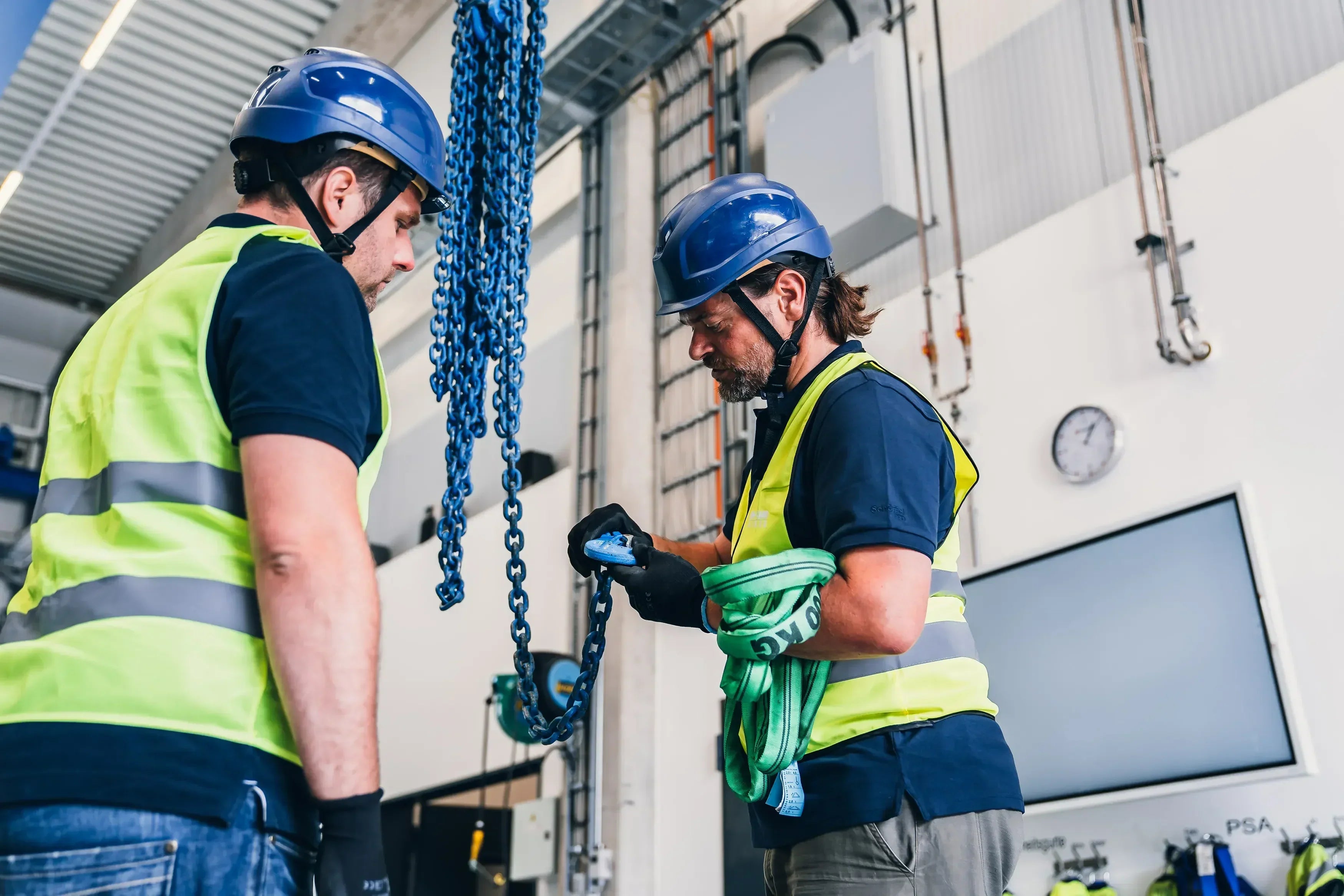
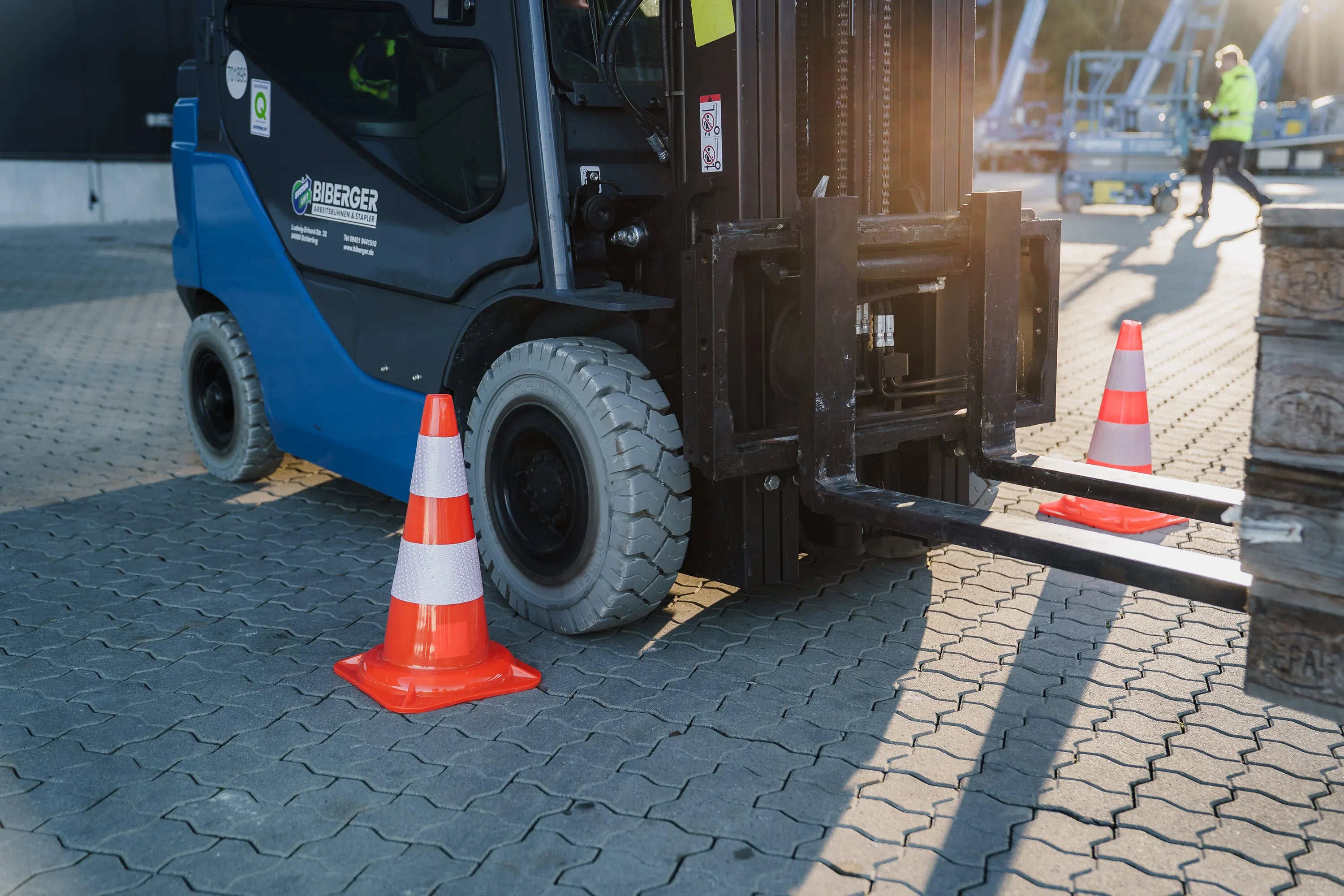
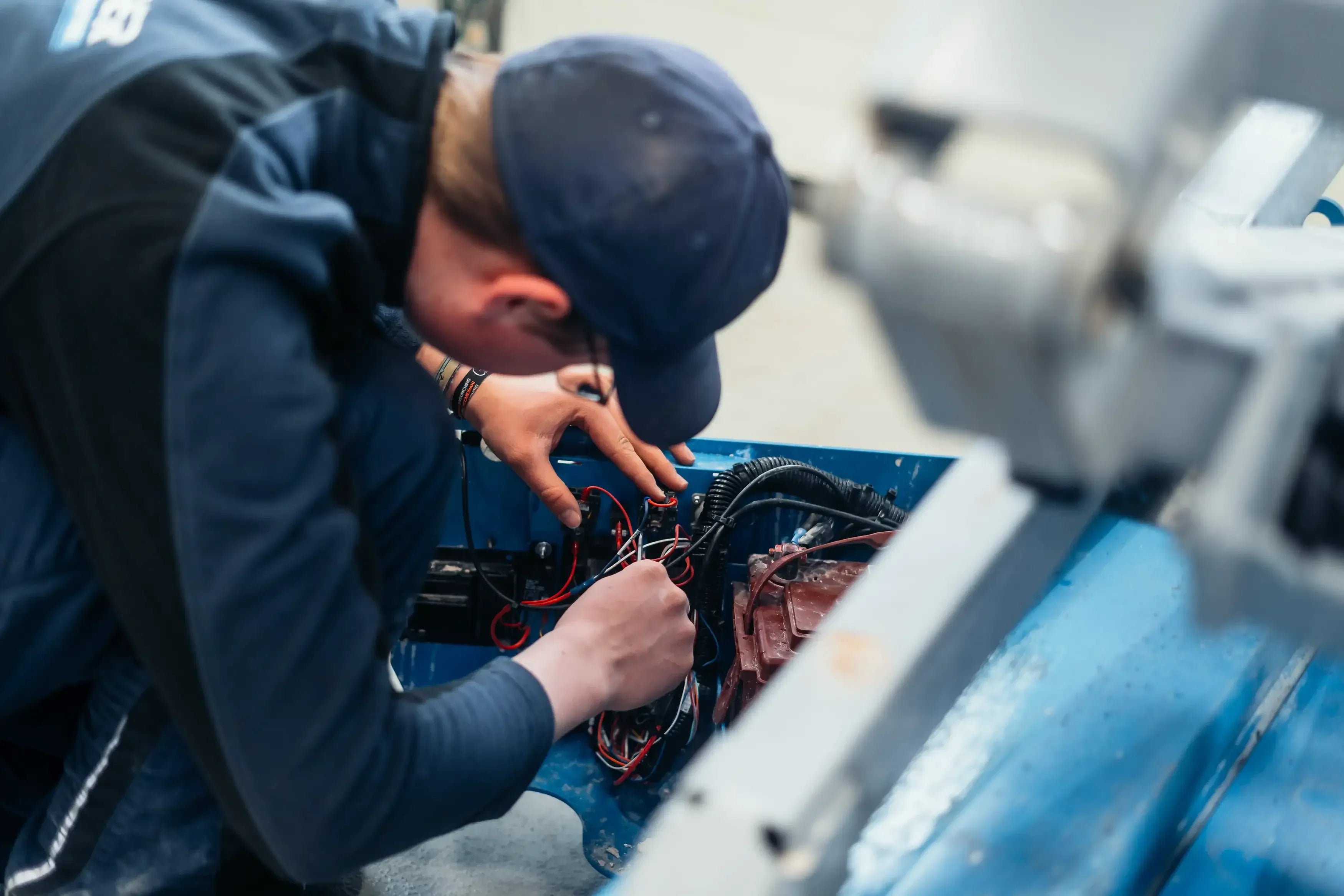






Share:
Troubleshooting work platforms - What to do if the work platform stops working?
Work platforms on the construction site: The possible uses
Our editorial quality standards
The subject content on biberger.de are editorially created, reviewed, and continuously updated. The basis is our daily work with aerial platforms, telehandlers, and industrial trucks – in rental, sales, operational planning, and technical support.
Each article draws on real-world experience and is editorially reviewed for clarity, accuracy, and practical relevance according to expert criteria. Technical statements are regularly compared against current industry standards and best practices.
The aim of our publications is to make reliable specialist knowledge accessible and to offer guidance to users, decision-makers and industry partners. BIBERGER sees itself as an independent information platform for safe, economical and modern height access technology – well-founded, comprehensible and free from advertising influence.